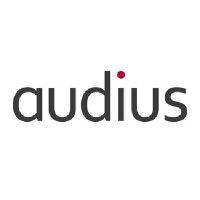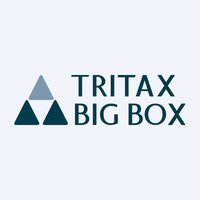
Tritax Big Box Reit PLC
LSE:BBOX
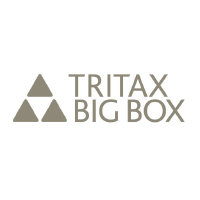

Utilize notes to systematically review your investment decisions. By reflecting on past outcomes, you can discern effective strategies and identify those that underperformed. This continuous feedback loop enables you to adapt and refine your approach, optimizing for future success.
Each note serves as a learning point, offering insights into your decision-making processes. Over time, you'll accumulate a personalized database of knowledge, enhancing your ability to make informed decisions quickly and effectively.
With a comprehensive record of your investment history at your fingertips, you can compare current opportunities against past experiences. This not only bolsters your confidence but also ensures that each decision is grounded in a well-documented rationale.
Do you really want to delete this note?
This action cannot be undone.

| 52 Week Range |
124.7
165.5
|
| Price Target |
|
We'll email you a reminder when the closing price reaches GBX.
Choose the stock you wish to monitor with a price alert.
This alert will be permanently deleted.
Profitability Summary
Tritax Big Box Reit PLC's profitability score is hidden . We take all the information about a company's profitability (such as its margins, capital efficiency, free cash flow generating ability, and more) and consolidate it into one single number - the profitability score. The higher the profitability score, the more profitable the company is.
Profitability Score
We take all the information about a company's profitability (such as its margins, capital efficiency, free cash flow generating ability, and more) and consolidate it into one single number - the profitability score. The higher the profitability score, the more profitable the company is.
We take all the information about a company's profitability (such as its margins, capital efficiency, free cash flow generating ability, and more) and consolidate it into one single number - the profitability score. The higher the profitability score, the more profitable the company is.
Profitability Score
Margins
Earnings Waterfall
Tritax Big Box Reit PLC

Margins Comparison
Tritax Big Box Reit PLC Competitors

| Country | Company | Market Cap |
Gross Margin |
Operating Margin |
Net Margin |
||
|---|---|---|---|---|---|---|---|
| UK |

|
Tritax Big Box Reit PLC
LSE:BBOX
|
4B GBP |
Loading...
|
Loading...
|
Loading...
|
|
| US |

|
Prologis Inc
NYSE:PLD
|
121.8B USD |
Loading...
|
Loading...
|
Loading...
|
|
| AU |
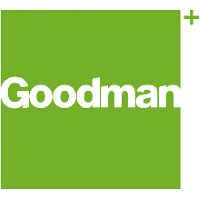
|
Goodman Group
ASX:GMG
|
58.6B AUD |
Loading...
|
Loading...
|
Loading...
|
|
| SG |

|
Ascendas Real Estate Investment Trust
SGX:A17U
|
13.2B |
Loading...
|
Loading...
|
Loading...
|
|
| UK |
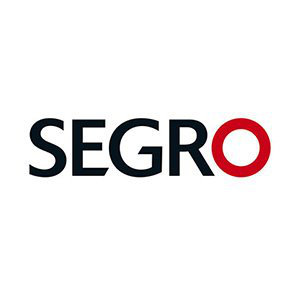
|
SEGRO PLC
LSE:SGRO
|
9.8B GBP |
Loading...
|
Loading...
|
Loading...
|
|
| SG |

|
ESR-REIT
OTC:CGIUF
|
12.8B USD |
Loading...
|
Loading...
|
Loading...
|
|
| US |
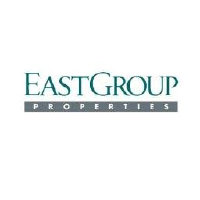
|
Eastgroup Properties Inc
NYSE:EGP
|
9.8B USD |
Loading...
|
Loading...
|
Loading...
|
|
| US |
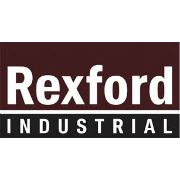
|
Rexford Industrial Realty Inc
NYSE:REXR
|
9.2B USD |
Loading...
|
Loading...
|
Loading...
|
|
| US |

|
Lineage Inc
NASDAQ:LINE
|
8.1B USD |
Loading...
|
Loading...
|
Loading...
|
|
| US |

|
First Industrial Realty Trust Inc
NYSE:FR
|
7.8B USD |
Loading...
|
Loading...
|
Loading...
|
|
| MX |
P
|
Prologis Property Mexico SA de CV
BMV:FIBRAPL14
|
129B MXN |
Loading...
|
Loading...
|
Loading...
|
Return on Capital
Return on Capital Comparison
Tritax Big Box Reit PLC Competitors

| Country | Company | Market Cap | ROE | ROA | ROCE | ROIC | ||
|---|---|---|---|---|---|---|---|---|
| UK |

|
Tritax Big Box Reit PLC
LSE:BBOX
|
4B GBP |
Loading...
|
Loading...
|
Loading...
|
Loading...
|
|
| US |

|
Prologis Inc
NYSE:PLD
|
121.8B USD |
Loading...
|
Loading...
|
Loading...
|
Loading...
|
|
| AU |

|
Goodman Group
ASX:GMG
|
58.6B AUD |
Loading...
|
Loading...
|
Loading...
|
Loading...
|
|
| SG |

|
Ascendas Real Estate Investment Trust
SGX:A17U
|
13.2B |
Loading...
|
Loading...
|
Loading...
|
Loading...
|
|
| UK |

|
SEGRO PLC
LSE:SGRO
|
9.8B GBP |
Loading...
|
Loading...
|
Loading...
|
Loading...
|
|
| SG |

|
ESR-REIT
OTC:CGIUF
|
12.8B USD |
Loading...
|
Loading...
|
Loading...
|
Loading...
|
|
| US |

|
Eastgroup Properties Inc
NYSE:EGP
|
9.8B USD |
Loading...
|
Loading...
|
Loading...
|
Loading...
|
|
| US |

|
Rexford Industrial Realty Inc
NYSE:REXR
|
9.2B USD |
Loading...
|
Loading...
|
Loading...
|
Loading...
|
|
| US |

|
Lineage Inc
NASDAQ:LINE
|
8.1B USD |
Loading...
|
Loading...
|
Loading...
|
Loading...
|
|
| US |

|
First Industrial Realty Trust Inc
NYSE:FR
|
7.8B USD |
Loading...
|
Loading...
|
Loading...
|
Loading...
|
|
| MX |
P
|
Prologis Property Mexico SA de CV
BMV:FIBRAPL14
|
129B MXN |
Loading...
|
Loading...
|
Loading...
|
Loading...
|






